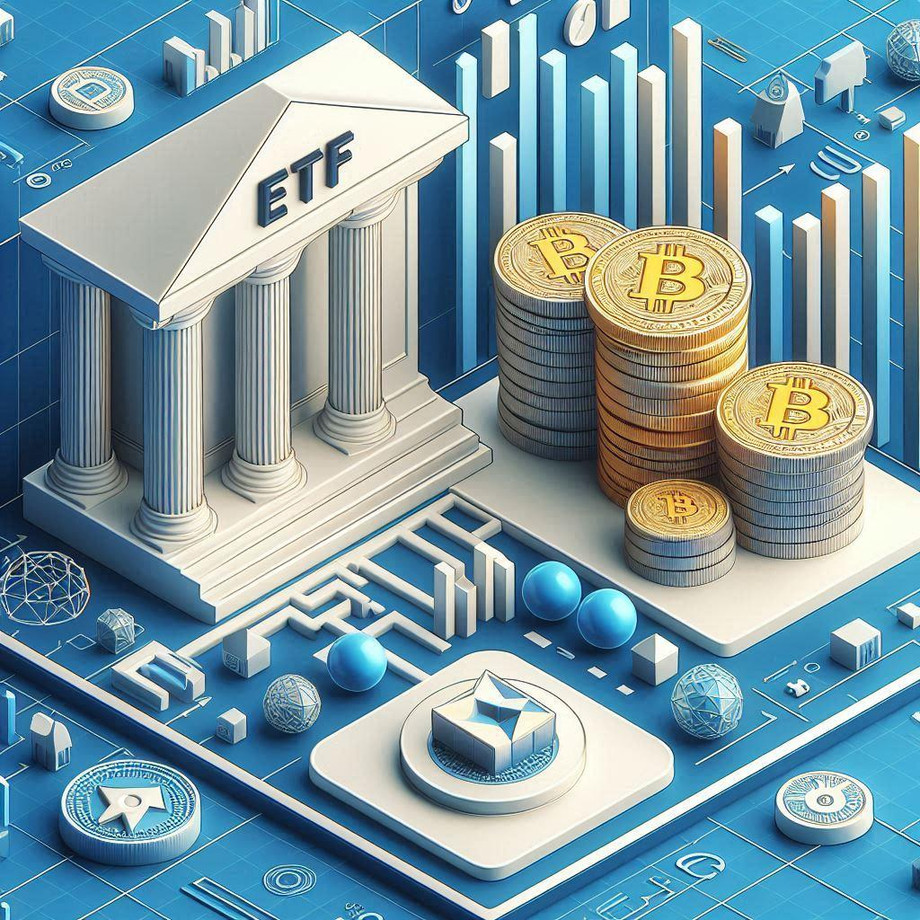Futures-Based ETFs (Exchange-Traded Funds based on futures contracts) have become an attractive investment tool in the financial market, especially for assets like Bitcoin and Ethereum. These funds offer access to digital assets without direct ownership, reducing risk for investors.
This article provides an in-depth look at Futures-Based ETFs, along with notable examples such as Ethereum ETF, Grayscale Bitcoin Trust (GBTC), and ProShares Bitcoin Strategy ETF (BITO).
What is a Futures-Based ETF?
A Futures-Based ETF is a type of Exchange-Traded Fund (ETF) built on futures contracts of a specific asset, rather than directly purchasing the asset. For digital assets like Bitcoin or Ethereum, Futures-Based ETFs help investors avoid risks related to the storage and security of digital assets while providing financial leverage through futures contracts.
Futures-Based ETFs operate by purchasing futures contracts of the underlying asset, such as Bitcoin or Ethereum, instead of directly owning these cryptocurrencies. These funds continuously adjust their portfolios by rolling over or replacing futures contracts upon expiration to maintain exposure to the price movements of the underlying asset.
Advantages and Disadvantages of Futures-Based ETFs
Advantages
-
Easy Access: Investors can participate in the digital asset market without the need to own or directly manage cryptocurrencies.
-
Reduced Storage Risks: No concerns about storing and securing digital assets, which is crucial given the frequent hacking and theft incidents in crypto space.
-
Financial Leverage: Allows investors to use leverage through futures contracts, enhancing potential returns if market trends are correctly predicted.
Disadvantages
-
Higher Costs: Rolling over and replacing futures contracts can increase the fund's operational costs.
-
Price Discrepancies: The price of futures contracts may differ from the underlying asset's price, leading to the ETF not accurately reflecting market movements.
Notable Examples of Futures-Based ETFs
ProShares Bitcoin Strategy ETF (BITO)
ProShares Bitcoin Strategy ETF (BITO) is the first Bitcoin futures ETF approved by the U.S. Securities and Exchange Commission (SEC).
BITO does not directly purchase Bitcoin but invests in Bitcoin futures contracts on the CME market. This offers easy access to Bitcoin for investors without concerns about storage.
Ethereum ETF
Ethereum ETF, a fund based on Ethereum futures contracts, is becoming a new hot spot in the investment market.
Like Bitcoin, Ethereum ETFs provide investment opportunities in Ethereum without direct ownership, alleviating issues related to security and storage.
Grayscale Bitcoin Trust (GBTC)
Grayscale Bitcoin Trust (GBTC) is one of the most popular investment products that allows investors to access Bitcoin without actually owning it. Although not an ETF, GBTC operates like a trust fund, offering liquidity and convenience for investors.
Grayscale is currently pushing to convert GBTC into a futures-based ETF to enhance transparency and reduce costs.
The Future of Futures-Based ETFs
Futures-Based ETFs are expected to continue thriving, especially as the digital asset market matures and attracts interest from institutional investors.
With the emergence of futures-based ETFs for various assets like Ethereum ETFs and Grayscale’s efforts to convert GBTC into an ETF, we may witness a new trend in safely and efficiently accessing the digital asset market.
Conclusion
Futures-Based ETFs open up new avenues for investors seeking exposure to the digital asset market without facing the risks associated with direct ownership. However, as with any investment tool, investors need to understand how they work, along with their pros and cons, to make informed investment decisions.




